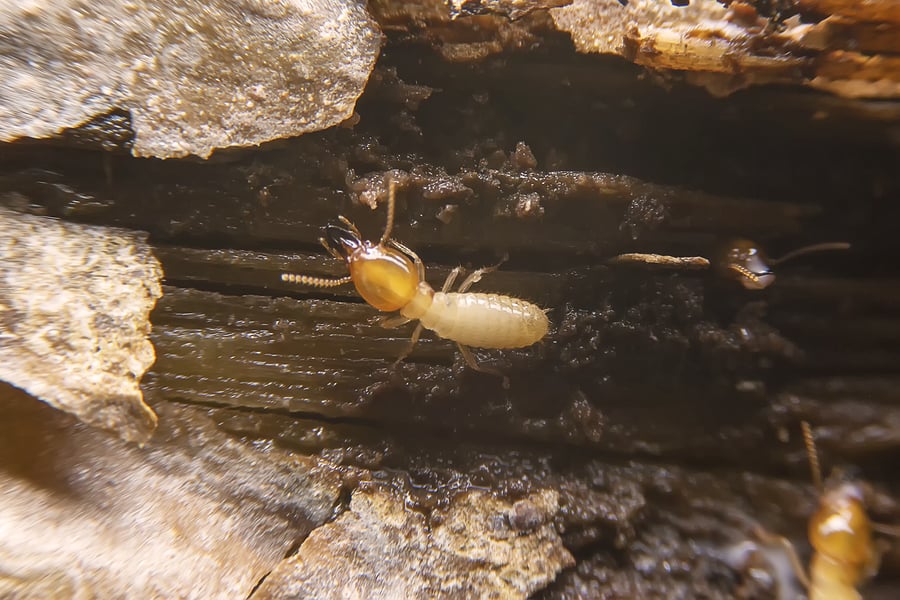Buying a home is a major investment. For most homeowners, a lot of time is spent repairing and renovating their home to their liking. However, owning a home can also come with a lot of unexpected problems that can be costly to repair, such as termite damage. Termites can colonize homes and cause significant undetected destruction over a long period of time. Most of the time, it costs thousands of dollars to repair their damage. Unfortunately, the infestations can sometimes be exacerbated by the homeowner. Below, we’ll explain what you need to know to make sure you aren’t attracting termites.
Improper Drainage
One of the most common reasons why you may have a termite infestation is due to improper drainage around your home. Subterranean termites are attracted to moisture and need an abundant source of nearby water to survive. Debris can build up in your home’s gutters, and the excess moisture can soften your roof and cause it to rot. A downspout can help divert rainwater away from your foundation, and splash blocks can prevent the water from pooling.
Wood Mulch
The type of materials you use to landscape can attract termites, specifically mulch. Mulch is often used near and around homes, usually against the foundation. Unfortunately, it serves as a food source for termites as it retains moisture and attracts these pests right to the edge of your home. Try to minimize the use of wood mulch and keep it at least 15 inches from the foundation.
Moisture
Lack of airflow and leaking pipes contribute to moisture problems in the home and can create a perfect environment for termites. Eliminating any type of excess moisture inside of your home is a huge step in preventing termites. Consider enclosing your crawlspace to prevent termites and improve the overall health of your home. Doing so will reduce the moisture, decrease humidity, lower utility bills, and prevent mold and wood rot.
If you’ve taken the necessary steps in preventing termites but still suspect that you have a problem, call your local pest control company to help. They can help set you up with a termite inspection and termite control and prevention plan.

